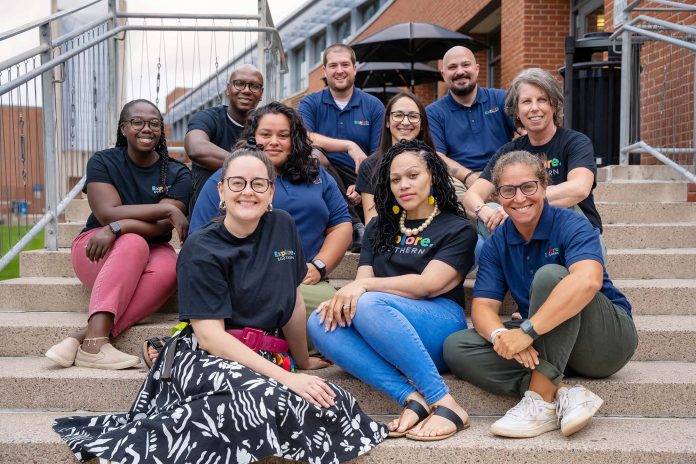Exploration is the hallmark of higher education, and the Academic Advising Office wants to ensure all students are able to explore any major they are interested in, or not interested in, during their very first year on campus, with the affirmation that graduating on time is still possible.
As part of a years-long revamping of the Academic Advising program, the new Explore Southern program enables students to make a well-informed and intentional choice of a major that aligns with their values, interests, and skills. Morgan Cottrell, coordinator of academic advising for major exploration, is excited to acquaint students with the Southern community through the program, which she calls “a university-wide collaboration.”
“We found that many students are not confident in their major choice, and many undergraduates change their major at least once,” says Cottrell. “So we are trying to normalize students using their first year to explore majors and still be on track.”
According to Cottrell, students experience Explore Southern in six steps. Each step is meant to guide and encourage students to reflect deeply on their interests, skills, and values.
“The first step,” she explains, “is educating yourself on what majors are, and are not. A major is not a sentence to be confined to one particular area your whole life and it is not meant to be what you choose to do forever; in fact, it probably won’t be what you do forever” she adds.
“The next, most important step,” she continues, “Is giving yourself permission to explore. We have well over 100 majors at Southern, and many students are ruling majors out simply because they don’t know they exist.”
To aid in the process of exploration, every student has access to Southern-specific resources such as an intentionally curated curriculum centered around self-reflection and self-inquiry, an online major elimination tool that keeps track of majors explored or eliminated, and individual assignments to professional academic advisors in the Academic Advisement office “who want to get to know you, and the pressures and information you are coming into this experience with that may or may not be helping you make an informed decision.”
Citing a national study conducted by educational consulting firm EAB, Cottrell says that “students who take time to explore majors end up graduating at higher rates than those that stick with the major they started college with – the idea being when you take time to explore, you end up making a more informed decision.”
Isn’t “undeclared” the same as “exploratory”? one might ask. Cottrell explains that most colleges have an undeclared major option, but it is apparent that students who choose an undeclared major get specialized advice around helping them choose a specific major. “So why not offer that specialized attention to all students?” she says.
While Southern does offer an undeclared major, what sets the SCSU exploratory opportunity apart is, says Cottrell, is that “We see all students as exploratory, not just students who choose undeclared as their major. We recognize that many students choose their academic major without full information, often with some misinformation, and at times with unwarranted pressures from family or society. For example, we understand that some students may only receive family support for pursuing majors in health, STEM, or business fields, despite their potential to excel in English, history, art, or music. Going forward, our goal is to make sure every single freshman goes through the process of major exploration to thoughtfully answer the question ‘Why did you choose this major?’”
Sometimes, the deciding factor in choosing a major is a personal endorsement from current students experiencing it firsthand. Exploration Ambassadors, explains Cottrell, are juniors and seniors in most academic departments who share personal experiences in their major of interest. So if a student is considering multiple majors, they can contact an Exploration Ambassador and get a personal perspective about what it takes to thrive.
The overall message Cottrell and the entire Academic Advising team hope for both current and prospective students is this: “When you give yourself permission to explore your major in your first year, you are more likely to graduate on time. Our curriculum is built for you to have that year to explore without adding any time to your degree completion. There is no downside to exploring.”


